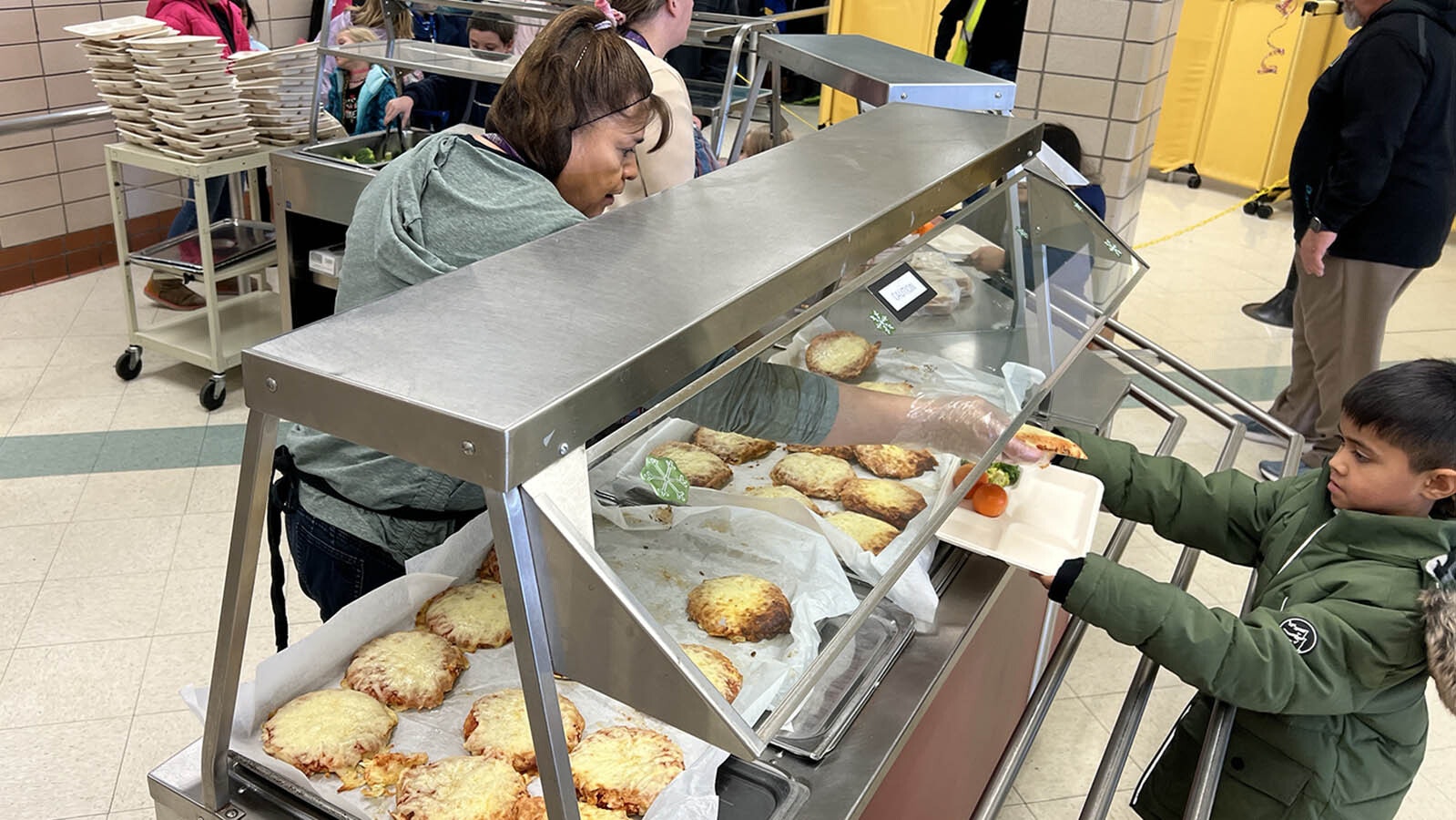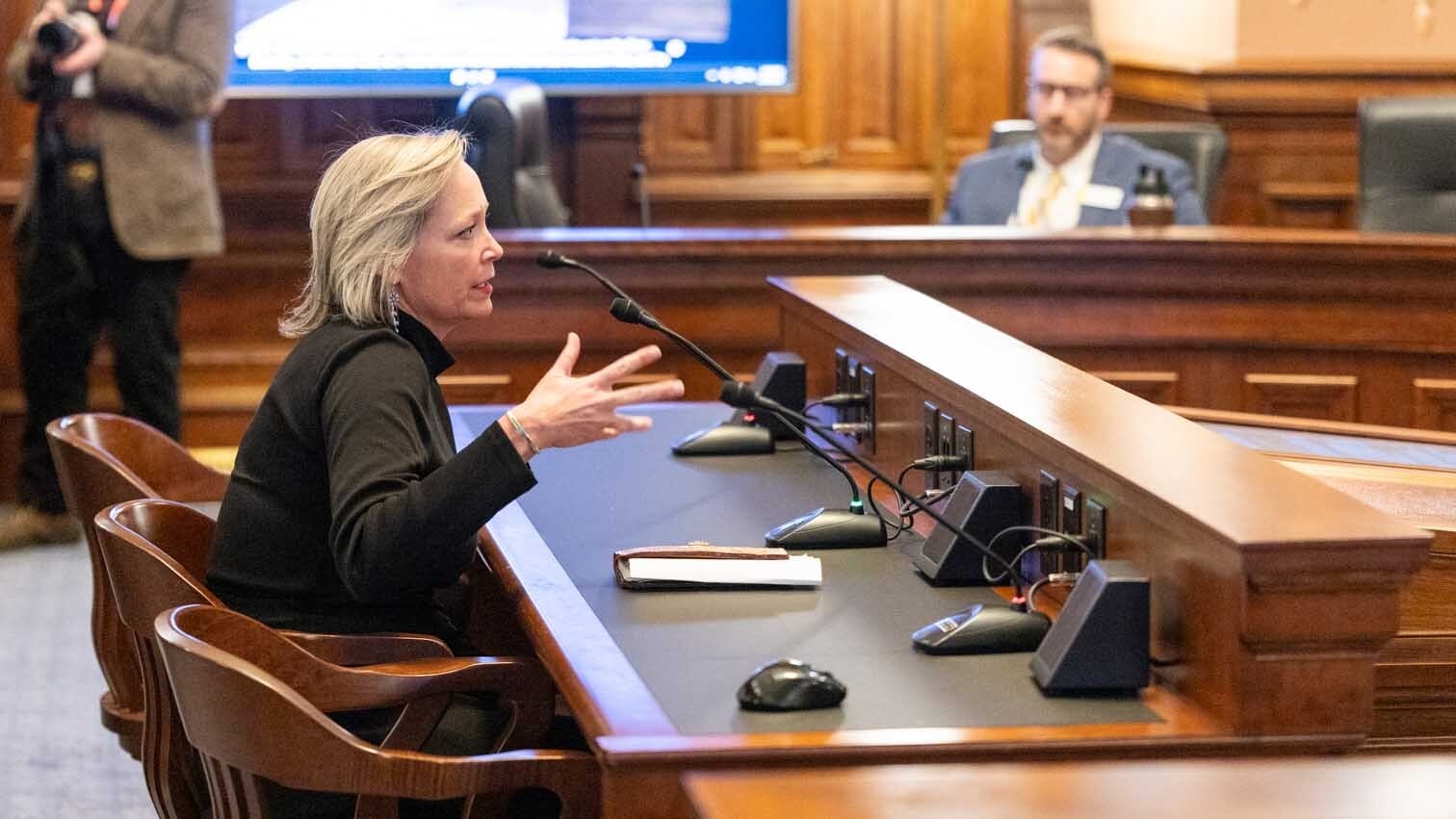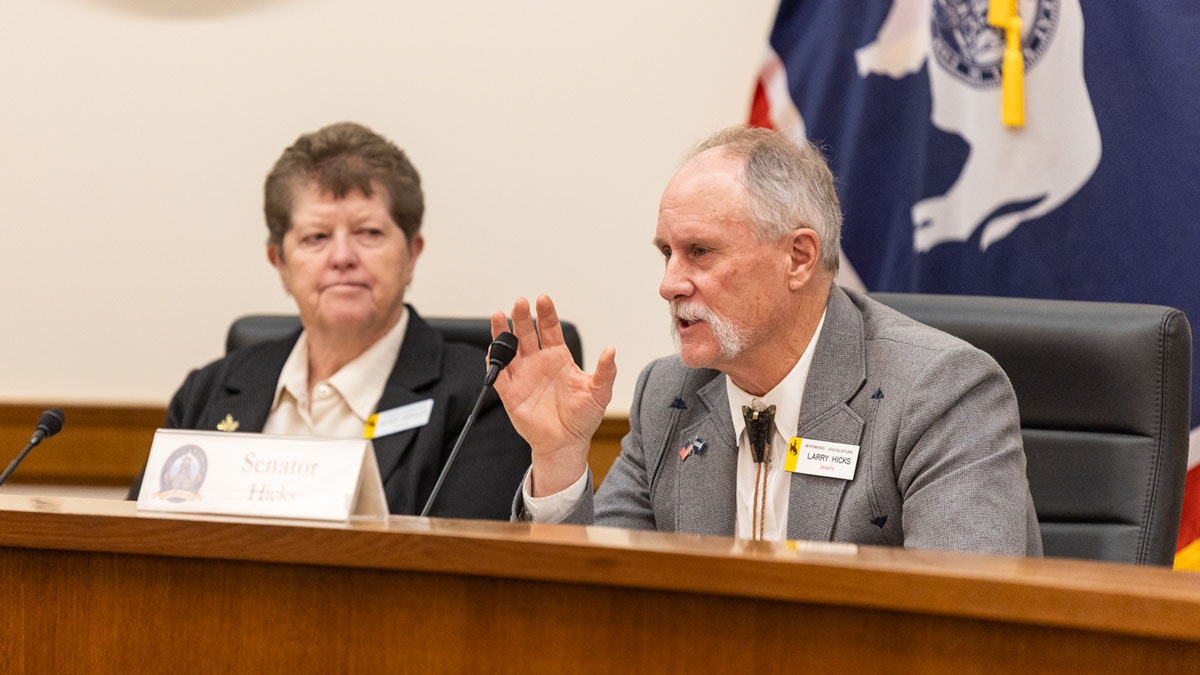“Strings attached” is a concern often cited in Wyoming political circles about accepting money from the federal government.
For Wyoming Superintendent of Public Instruction Megan Degenfelder, a recent proposal from President Joe Biden’s administration to expand food stamp options for children and adults in Wyoming was too much. She rejected the federal money.
“I will not let the Biden administration weaponize summer school lunch programs to justify a new welfare program,” she told Cowboy State Daily. “Thanks, but no thanks. We will continue to combat childhood hunger the Wyoming way."
The U.S. Department of Agriculture program, known as Summer Electronic Benefit Transfer (EBT), would provide families with $120 per eligible child for the summer to buy food at grocery stores, farmers markets or other authorized retailers, similar to how food stamp programs are used.
So far, 35 states will participate in the program this upcoming summer.
Degenfelder believes the program could be easily manipulated to allow adults to receive expanded food stamp benefits while masking and weaponizing itself as a summer school lunch program for kids.
“This new proposal from the Biden administration is not a summer school lunch program for kids,” Degenfelder said. “It is a backdoor expansion of the adult federal food stamp program with strings attached that will cost Wyoming taxpayers millions of dollars.”

The Wyoming Way
Turning down federal money for programs isn’t new for Wyoming. State lawmakers and officials have rejected participation in federal programs before to avoid the hoops they would have required the state to jump through.
The most highly visible example of this is the Legislature’s repeated rejection of Medicaid expansion.
A spokesperson for Gov. Mark Gordon said he supports Degenfelder’s decision to reject the money and shares her concerns about growing Supplemental Nutrition Assistance Program (SNAP) benefits with public dollars.
“He is supportive of the decision to focus on existing nutrition programs and ensure they work better,” said Michael Pearlman, a spokesperson for the governor.
Nate Martin, executive director of health advocacy group Better Wyoming, disagrees with Degenfelder and Gordon, and believes they are engaging in partisan politics and being unhelpful.
“I get that the governor wants to stick it to the feds, but not in this case,” Martin said. “The kids this program would feed aren’t Republicans or Democrats — they’re just hungry.”
Gordon’s wife, first lady Jennie Gordon, spearheads the Wyoming Hunger Initiative, an organization dedicated to fighting food insecurity in the Cowboy State.
“With the price of food going up, this problem is getting worse,” Martin said. “Some people in Cheyenne, like the first lady, get that this is a serious, complex issue that won’t be solved by one approach.”
Already Offered
Wyoming already offers free and reduced-priced meals to students around the state, no matter their income, through its Summer Food Service Program.
Sponsors can choose to provide up to two meals a day for any duration for breakfast, snack, lunch or dinner.
Degenfelder said she wants to continue to combat childhood hunger in Wyoming and there’s room for improvement within the state’s program as far as making it easier for students to access, no matter where they live.
There were 96 sites offered last summer in 31 communities, but only in 16 of the state’s 23 counties.
The program is open to all children 18 years of age or younger, or those with disabilities still enrolled in school programming, to receive a free meal.
Had Wyoming participated in the Summer EBT program, the benefits would go to families determined eligible via district data, and would be eligible to use EBT money to buy food in addition to accessing the food sites already offered through the state’s summer food service program.
Costs And Figures
Offering the federal Summer EBT would have required 50% matching financial participation from Wyoming, costs of which would be dependent on how many people used the program. The Wyoming Department of Education projects that the program would cost $2.2 million in its first year and $1.3 million in years thereafter. Degenfelder said running the program would also have required her department to hire more employees.
“When we already have a program in place that we can right now make improvements to, I just think that this duplicative effort that has these kinds of strings attached is not good for Wyoming taxpayers and it’s just not something we’re willing accept in Wyoming,” Degenfelder said.
The Wyoming summer food program provided 212,155 meals in 2023 at a cost of $882,789. Nearly all of these funds were provided by the federal government.

Leo Wolfson can be reached at leo@cowboystatedaily.com.





